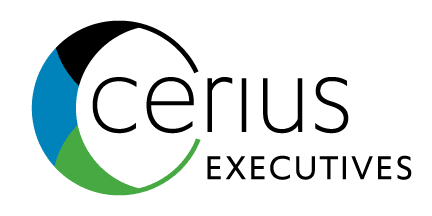Independent Executive Partnerships

Each independent executive operates his or her own business, and each client situation is unique.
Partnering, formally or informally, with other individuals in a similar situation can offer executives the flexibility and independence that initially attracted them to this career while still retaining some benefits of being part of a team, including more collaboration, brainstorming, meaningful partner relationships, and any number of other opportunities to grow your businesses together.
Case Study: Independent Executive Partnership Perspectives
For more than fifteen years, Gene Kaplan has been an independent executive and part of a success consortium, as he calls it. As a mechanical engineer, Gene always understood how things worked. As his career evolved, he learned how to make things work optimally. He worked as an engineer before starting his own systems integration company. After a shift in the marketplace and a change of client needs, Gene closed down his business and transitioned from being an entrepreneur to being a solopreneur. He saw it as a pretty easy transition and a soft landing because he was able to leverage all of his long-standing relationships in supply chain and manufacturing into client engagements for a growing independent executive business.
Some of those relationships were with people with whom he had worked inside his company or in the industry and who also wanted to be independent. They had been working together on projects here and there as well as referring business to each other. After a while, they decided to start getting a little more serious about it. They saw the need to better coordinate the group and pull in more people on larger projects. They have been focused on working with larger companies and contracts for about five years now and have been very successful at it. They are able to bring an array of expertise and perspective you would get from a large firm while offering the flexibility many clients appreciate. When they won a large contract against a well-known firm that was focused specifically on what the client was looking for and had even written books on it, Gene asked the question, “Why us?” The client said it was the flexibility in their offering, and the knowledge they weren’t going to shove a standard program down the client’s throats.”
Gene says his consortium is made up of a group of seasoned executives with whom he has had prior dealings, who work well together, have similar cultures and philosophies, and can deliver a great product to clients, either individually or in teams. There is a core group of individuals, an additional network of expertise that is not needed as often, and partners who provide resources beyond professional services. For example, the consortium doesn’t provide accounting services. It is not where the engagement focus is, but there are times on a project when clients need a good accounting or finance professional’s advice. There’s no formal agreement regarding referral fees nor a standard operating procedure. Each independent executive operates his or her own business, and each client situation is unique. It is up to each to do the right thing for the client and make it work when referring someone from within the consortium or when working as a team.
When asked by clients to explain why they operate as they do, Gene answers, “What’s different about us is we’re people working together because we want to, not because we happen to be employed by the same company.”
Gene describes the consortium, “There is a lot of overlap on expertise, and we like that. Take one of our partners, who came out of one of our clients. He is an operations executive. He focuses on having regular meetings with clients and keeps moving the people and the project along. He has worked within these kinds of companies his whole career, whereas I never have. All of my experience is from the project side, as a service to the client. It’s good that our group has both kinds of professionals because sometimes you need that project perspective from the outside, and sometimes you really need the perspective of someone who has walked in the client’s shoes. We can do the same thing, but looking through different eyes.”
When considering partnering with someone or a group, Gene offers a few things to consider: Am I just a small number in a really big crowd? Is this just another LinkedIn group and someone’s taking some money? What are they going to do for me? Why do they need/want me? If they don’t, it’s a one-way street. Why am I important to them? Considering partnering with individuals who have overlapping skills, not just complementary ones. Don’t try to be everything to everyone; develop your value discipline, and be able to clearly articulate it, both as a group and an individual.


